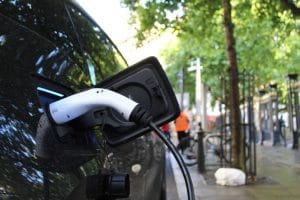Driving electric cars is good for your business

It has been well publicised that the government has pledged to end the sale of all new petrol and diesel cars and vans by 2040. That electric vehicles are the future of road transport is indisputable and yet the uptake by the public is slow. Electric vehicle sales still represent less than one per cent of total vehicle sales. Purchasers are put off by the initial cost and a sense that if they wait, the technology will become both better and cheaper. If you run a business however, there are good reasons why you should become an early adopter. One of our recent articles advised: “Look for a vehicle that is compatible with your brand or the image your company wants to portray”. If your business uses electric vehicles you are demonstrating a commitment to a cleaner, healthier environment and that you have the resources to invest in the technology of the future. Running electric vehicles sends powerful messages about your business’ sense of social responsibility and about its modernity.
There are difficulties which are associated with a technology which is still in its infancy, such as the shortage of public charging points and battery storage capacity. Estimates vary as to how many charging points there are in the UK, but the figure seems to be somewhere between 15 and 20 thousand, though only about 10% of these are rapid charging points. This situation will improve dramatically, but until it does you might need to think strategically about the areas in which your business could run electric vehicles. In terms of battery life, the technology is developing fast and a range of between 200 and 300 miles is now not uncommon.
An investment in electric vehicles is an investment in the future and although initial outlay may seem high, there are significant savings to be made. Although the government has now scrapped its subsidies for the purchase of hybrid vehicles, you can still get a government grant of up to £3,500 toward the purchase of an electric car or up to £8,000 toward the purchase of an electric van. There are also £500 grants available for the installation of home or workplace charge points. Electric vehicles don’t require road tax and are exempt from congestion charges and with most major cities considering the introduction of congestion charges this could lead to significant savings in the future.
Up to this point, insurance costs have been surprising high for electric vehicles. This is because over cautious insurance companies have lacked historic data concerning repair costs. As confidence in electric cars grows, insurance costs are likely to tumble. Already, insurance for the all-electric Nissan Leaf is less than for a conventional Ford Focus, however, other electric vehicles could be more expensive to insure, so always check before you buy. The other big saving is of course in the running costs. The Leaf’s running costs are estimated to be 85% lower than a conventional petrol or diesel car and maintenance is estimated to be 75% cheaper. Your environment needs you, go electric now.

